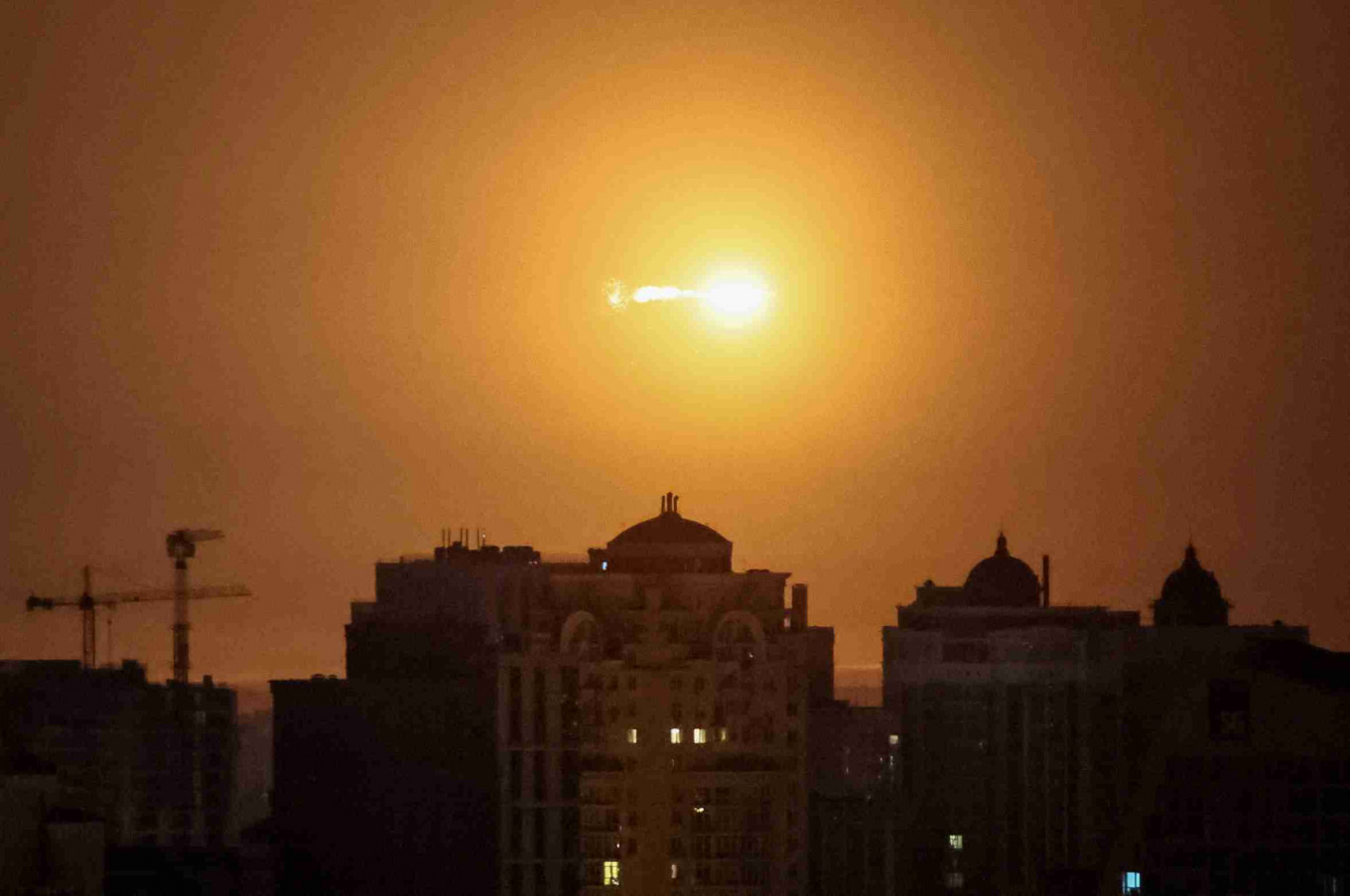Popular Reads
Top Results
Can't find what you're looking for?
View all search resultsPopular Reads
Top Results
Can't find what you're looking for?
View all search resultsZelensky faces the growing weariness in the Western support
The conflict is not a simple binary struggle but a multifaceted chessboard with various players and interests at stake.
Change text size
Gift Premium Articles
to Anyone
U
krainian President Volodymyr Zelensky's recent visit to the United States, the United Nations, and Canada yielded positive results as he successfully secured crucial military and financial support for Ukraine.
Yet, amid this backdrop of cooperation and solidarity, a kind of weariness appears to be setting in within the Western world when it comes to the ongoing Ukraine crisis. Zelensky's diplomatic pilgrimage was orchestrated with precision, and the outcomes were on the whole favorable for Ukraine.
The US, long a stalwart supporter of Ukraine's sovereignty, reaffirmed its commitment with a bolstered aid package, signaling solidarity with the embattled country. The UN, that venerable forum for international discourse, provided a stage for Zelensky to articulate Ukraine's grievances and elicit global sympathy. Canada, too, pledged its unwavering support, demonstrating that the echoes of the Ukraine conflict resonate far beyond the European continent.
However, beneath the veneer of camaraderie and support lies a subtle undercurrent of fatigue – a feeling that, while not openly acknowledged, is beginning to cast a shadow over the Western world's response to the Ukraine crisis. It is akin to the weariness one experiences after a prolonged theatrical production, where the initial enthusiasm and passion have given way to a more subdued sentiment.
This fatigue stems from the relentless nature of the crisis, which has been a fixture of international headlines for years. The West has shouldered the burden of maintaining sanctions, providing aid, and engaging in diplomatic wrangling with Russia. The ceaseless debates, negotiations, and posturing have apparently started taking a toll on the collective patience of Western leaders.
Moreover, the Ukraine crisis has become intertwined with a broader global landscape characterized by a multitude of challenges—economic instability, climate change, and the ever-present specter of terrorism. As these issues clamor for attention, the focus on Ukraine may seem like an unyielding refrain, demanding resources and energy that could be directed elsewhere.
The fatigue is also exacerbated by the geopolitical complexities surrounding Ukraine. The conflict is not a simple binary struggle but a multifaceted chessboard with various players and interests at stake. The West is acutely aware that finding a resolution that satisfies all parties is a Herculean task, and the longer the crisis endures, the more elusive a lasting solution seems.
In absence of any “substantial” military successes for the Ukrainian forces on the battleground, the Ukraine conflict is likely to be soon classified as a “frozen” conflict. The Ukraine crisis, while undeniably important, has become a protracted and seemingly intractable conflict. The initial fervor and urgency that accompanied its outbreak have given way to a sense of resignation. The cycle of violence and diplomacy, followed by a return to violence, has left many feeling disillusioned and questioning the effectiveness of continued engagement.
The Ukrainian military finds itself in a precarious position, facing the formidable challenge of regaining ground seized by Russian forces. From tactical perspective, the forthcoming weeks hold immense significance for the Ukrainian ground forces. The window of opportunity before the onset of rain-soaked mud could prove pivotal in military advances.
The looming threat of inclement weather, with its potential to turn the battleground into a quagmire, underscores the criticality of the situation. Ukrainian troops understand that their ability to make headway in the weeks ahead is not only a matter of military strategy but also a crucial determinant in sustaining the international community's attention and commitment.
As winter sets in, the complexity of the conflict could further be compounded, making military operations more arduous and humanitarian conditions even more dire. As the fatigue sets in, it is crucial to remember that this weariness should not be mistaken for indifference or abandonment.
Apparently, as a whole, the Western world remains committed to Ukraine's territorial integrity and sovereignty, but the endurance required for this commitment is being tested.
Last week, in a significant development, Poland's prime minister made a stark announcement, declaring his nation would cease its arms shipments to Ukraine. This pronouncement, seemingly intended to exert pressure on Kyiv, has cast a shadow of uncertainty over Poland's role as a prominent supplier of military equipment, further complicating an escalating trade dispute between these neighboring states.
Similarly, during his recent visit to Washington, Zelensky faced a relatively quieter reception compared to his previous sojourn last year. The political landscape in the US has undergone a subliminal shift since Zelensky's address to Congress last December, a moment when he basked in resounding applause and was hailed as a war hero.
However, the recent bout of US aid for Ukraine, though generally well-received, was met with noticeably less enthusiasm in the Congress compared to the hero's welcome of the previous year.
Intriguingly, House Speaker Kevin McCarthy, currently grappling with opposition to the Ukrainian funding package from Republicans aligned with Trump, made a conspicuous choice by abstaining from the welcoming committee for President Zelensky. Worth noting is McCarthy's decision to decline Zelenskyy's request for a joint session of Congress, a striking departure from the dramatic visit when such a session was arranged in last December.
McCarthy attributed this move to logistical constraints arising from short notice, hinting at a shift in the typically bipartisan stance toward Ukraine amidst the ebb and flow of internal political dynamics. This episode serves as a stark reminder of the evolving and increasingly partisan nature of US foreign policy engagement under the looming influence of Trump.
Nonetheless, it is evident that a sense of fatigue is beginning to permeate the Western world's perspective on the Ukraine crisis.
***
The writer is an international affairs analyst, based in Karachi.











